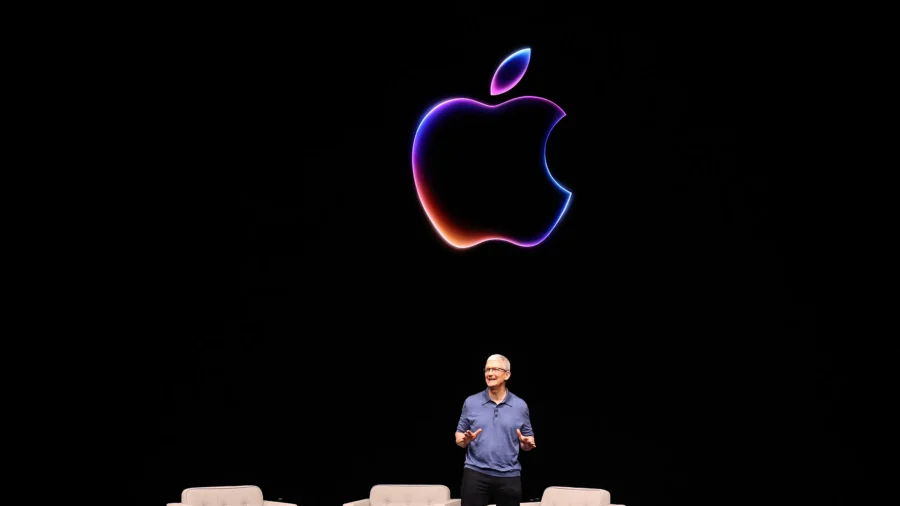Apple has avoided facing large fines in a European Union antitrust probe after the company committed to making its contactless payment technology on iOS devices available to competing digital wallets.
The European Commission opened an investigation into Apple’s “Tap and Go” service in 2020. The “Tap and Go” feature allows Apple device users to make contactless payments in stores using near-field-communication (NFC) technologies. The company made its Apple Pay service the sole mobile wallet which can access the NFC feature on iOS—only Apple Pay users could utilize Tap and Go on iOS.
In its investigation, the European Commission concluded that “Apple abused its dominant position by refusing to supply the NFC input on iOS to competing mobile wallet developers while reserving such access only to Apple Pay,” the agency said in a July 11 press release.
“Apple’s refusal excluded Apple Pay’s rivals from the market and led to less innovation and choice for iPhone mobile wallets users.”
Apple made several commitments to address the commission’s concerns, including allowing third-party wallet providers access to the NFC input on iOS devices free of charge.
On Thursday, the European Commission announced that the assurances offered by Apple are “legally binding under EU antitrust rules.”
If Apple fails to honor its pledges, the commission can impose a fine of up to 10 percent of the firm’s total annual revenue. Apple made more than $383 billion in revenue for the 12 months ended September 2023.
Alternatively, the agency may charge a 5 percent penalty on the company’s daily turnover for every day of noncompliance.
“Apple has committed to allow rivals to access the ‘tap and go’ technology of iPhones. Today’s decision makes Apple’s commitments binding. It opens up competition in this crucial sector by preventing Apple from excluding other mobile wallets from the iPhone’s ecosystem,” said Margrethe Vestager, executive vice-president in charge of competition policy.
“From now on, competitors will be able to effectively compete with Apple Pay for mobile payments with the iPhone in shops. So consumers will have a wider range of safe and innovative mobile wallets to choose from.”
The European Commission tested Apple’s commitments between Jan. 19 and Feb. 19, consulting with all third parties whether the company’s new policies allayed their concerns.
The agency concluded that Apple’s assurances would address all concerns that its competitors had regarding NFC access. As such, the agency decided to make them legally binding.
The commitments will remain in effect for 10 years throughout the European Economic Area. During this period, their implementation will be monitored.
Apple’s Regulatory Conflicts
The EU decision on Tap and Go comes as the European Commission had imposed a fine of more than 1.8 billion euros (about $1.95 billion) on Apple for allegedly engaging in “unfair trading” practices that harmed iOS users’ choices.
The fines were imposed as part of an investigation into Apple’s policies regarding music streaming. The commission found that Apple “bans music streaming app developers from fully informing iOS users about alternative and cheaper music subscription services available outside of the app and from providing any instructions about how to subscribe to such offers.”
Apple engaged in such “unfair trading conditions” for almost 10 years, causing customers to pay “significantly higher prices for music streaming subscriptions.”
The commission decided that the fine was necessary because Apple’s actions led to non-monetary harm that can’t be properly quantified.
In June, the commission accused Apple of violating its Digital Market Act by preventing developers from directing customers toward “alternative cheaper purchasing possibilities” free of charge.
Meanwhile, Apple is also facing an antitrust lawsuit in the United States from the Department of Justice and multiple states.
The lawsuit alleged that Apple maintained a monopoly over smartphones by “selectively imposing contractual restrictions on, and withholding critical access points from, developers.”
The tech firm is accused of blocking innovative apps, suppressing mobile cloud-streaming services, and limiting third-party digital wallets.
Apple defended its policies, stating that the lawsuit “threatens who we are and the principles that set Apple products apart in fiercely competitive markets. If successful, it would hinder our ability to create the kind of technology people expect from Apple—where hardware, software, and services intersect.”
“[The suit] would also set a dangerous precedent, empowering government to take a heavy hand in designing people’s technology.”
From The Epoch Times

